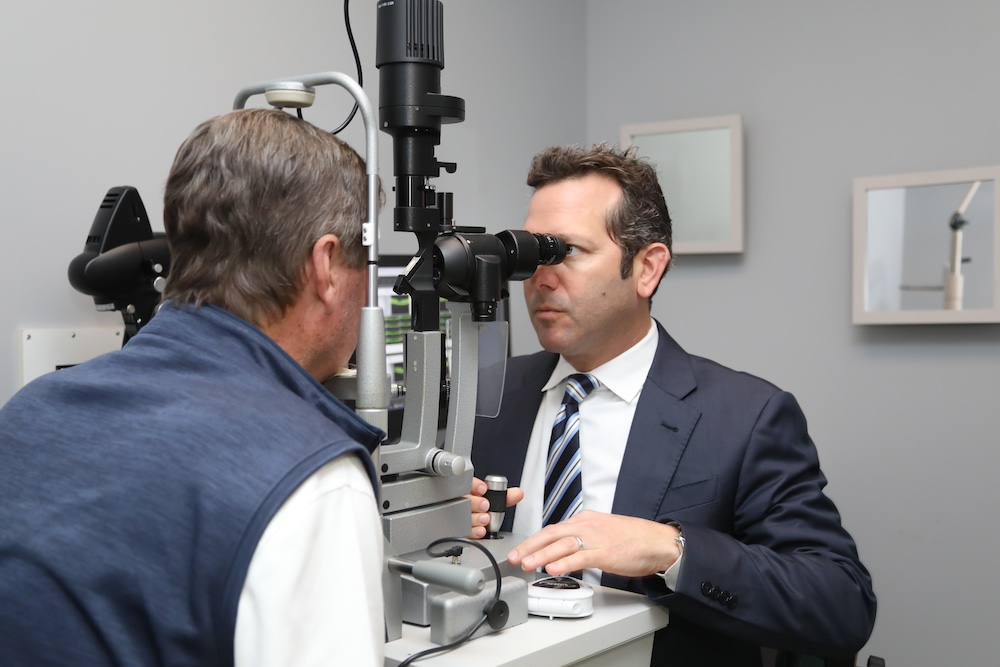What Type of Doctor Should I See for Macular Degeneration?

Macular degeneration is a leading cause of vision loss, particularly in older adults. It's a condition that requires expert care and management to preserve vision and maintain quality of life. But what type of doctor should you see if you have macular degeneration? In this blog, we'll explore the best type of specialist for this condition and the importance of timely diagnosis and treatment.
Understanding Macular Degeneration
Macular degeneration, also known as age-related macular degeneration (AMD), is a disease that affects the macula, the central part of the retina responsible for sharp, straight-ahead vision. The macula allows you to see fine details clearly, whether you're reading, driving, or recognizing faces.
There are two main types of macular degeneration:
- Dry Macular Degeneration: This is the more common form, accounting for about 80-90% of cases. It occurs when the macula thins over time and tiny clumps of protein, called drusen, form under the retina. Vision loss is typically gradual.
- Wet Macular Degeneration: Though less common, this form is more severe and can lead to faster vision loss. It occurs when abnormal blood vessels grow under the retina and leak fluid or blood, damaging the macula.
Symptoms of macular degeneration may include blurry or fuzzy vision, difficulty recognizing faces, a dark or empty area in the center of vision, and distortion of straight lines.
The Right Specialist: Retina Specialists
For macular degeneration, the best type of doctor to consult is a macular degeneration specialist, also known as a retina specialist. Retina specialists are ophthalmologists who have undergone additional training to diagnose and treat diseases of the retina and vitreous. They possess the expertise to manage conditions like macular degeneration and utilize advanced diagnostic and treatment techniques.
Key diagnostic tools used by retina specialists include:
- Optical Coherence Tomography (OCT): This non-invasive imaging test provides detailed cross-sectional images of the retina, allowing specialists to detect abnormalities and monitor disease progression.
- Fluorescein Angiography: This test involves injecting a dye into the bloodstream to highlight the blood vessels in the retina, helping to identify leaking or abnormal blood vessels in wet AMD.
- Amsler Grid Test: A simple eye test that can detect vision changes caused by AMD, such as distortion or blurring of straight lines.
Treatment Options for Macular Degeneration
Treatment for macular degeneration varies depending on the type and stage of the disease. For dry AMD, there is currently no cure, but certain lifestyle changes, nutritional supplements, and low vision aids can help slow progression and manage symptoms. For wet AMD, treatments may include:
- Anti-VEGF Injections: Medications are injected into the eye to inhibit the growth of abnormal blood vessels and reduce fluid leakage.
- Photodynamic Therapy (PDT): A light-activated drug is used to close abnormal blood vessels.
- Laser Therapy: High-energy lasers are used to seal leaking blood vessels in some cases.
Importance of Regular Eye Exams
Early detection and treatment are crucial for managing macular degeneration and preventing severe vision loss. Regular eye exams, particularly for individuals over 50 or those with a family history of AMD, can help catch the disease early when treatment is most effective.
Take Action to Protect Your Vision
Macular degeneration is a serious condition that requires highly specialized care. If you are experiencing symptoms or have been diagnosed with AMD, it’s important to consult a retina specialist for comprehensive evaluation and treatment. With a nationwide network of leading retina specialists, Retina Consultants of America (RCA) is here to provide the expert care you need. Don’t wait to take control of your eye health – find an RCA retina practice near you today.